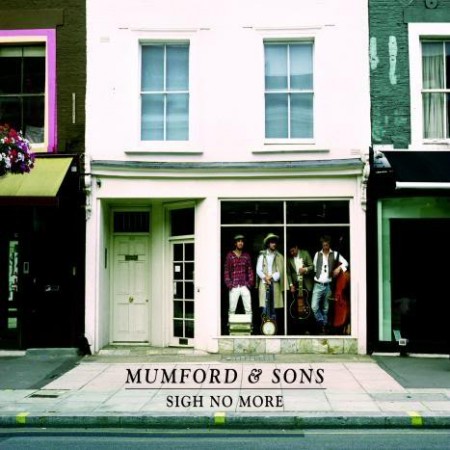by Gordon

Pitchfork: 8.4 Rolling Stone: 4/5 Metacritic: 84 Spin: N/A

Released: July 2002
Tracklisting:
-
Fight Test
-
One More Robot / Sympathy 3000-21
-
Yoshimi Battles the Pink Robots, Pt. 1
-
Yoshimi Battles the Pink Robots, Pt. 2
-
In the Morning of the Magicians
-
Ego Tripping At the Gates of Hell
-
Are You A Hypnotist?
-
It’s Summertime
-
Do You Realize?? [LISTEN]
-
All We Have Is Now
-
Approaching Pavonis Mons By Balloon (Utopia Planitia)
The Flaming Lips are a band and more than that, a musical identity, that I find intimidating to even attempt to categorize or judge. Like Picasso or any other great (modern) artist, there’s the part where everyone agrees that the artist is pretty much a genius, and then the part where no one can agree on the when, why or what for. With my stab at this band I start with what I see as the easiest of roads…Yoshimi Battles the Pink Robots, an album that even I can’t believe is now eight years old.
For me (and not at all for any true Flaming Lips fan), the album was my eye-opener, my first and benchmark listen that would interest and propel me into the sound and knowledge of the band. My story isn’t completely unique, of course. The album’s been lauded as “a lush and haunting electronic symphony” by Fortune magazine, “as strange as it is wonderful” by Billboard, “ambitious” by the ever-critical Rolling Stone, and, most flatteringly, Uncut declared it the greatest album released in the magazine’s lifetime. No wonder it made an impression, and mid-high school was just barely a ripe enough age to experience the wonder for myself.
Opening in what I only later discovered as the brilliant chord progression to Cat Stevens’ “Father and Son”, is “Fight Test”, which, though a near-copy of the 1970 classic, is distinct, funky, and altogether amazing enough to stand alone as a fine song achievement nonetheless. Still electronic through and through, it still, like much of the album, comes off as comparatively tame for the band with respect to their penchant for straight-up off-the-wall musical compositions…and I won’t deny that this works in favor of the album for me and arguably the general listeners’ experience. Frontman Wayne Coyne, though perhaps no genuine prodigy in terms of songwriting, instantly won me over with the song’s enchanting chorus: “I don’t know where the sunbeams end and the starlights begin/ It’s all a mystery/ I don’t know how a man decides what is right for his own life/ It’s all a mystery.”
The album’s title track (Pt. 1 at least) is another knockout, somehow combining simple acoustic guitar strumming with a steady beat, Coyne’s personable vocals, and contemporary, robot-inspired electro to create an über-catchy tune, one that allows us to forgive and even soak up a chorus like “Oh Yoshimi/ They don’t believe me/ But you won’t let those robots eat me.” The song is brilliantly incapable even of comparison in its standalone choreography, a healthy benefit to the band itself, intended or not, for steering clear of any and all in the realm of sameness with the bulk of their contemporaries. Pt. 2 to the “same track”, while not at all equal in greatness, at least welcomes old visitors and introduces new visitors to the oddities of The Lips with at least some level of mainstream respect.
“In the Morning of the Magicians” was one to shine through after a few listens, but with its catchy, spacey ambience and semi-serious, ominous synthesizers, it’s up there as one of the greater of the lesser songs on the album. But the third truly genius and nearly timeless song is the now easily-recognized “Do You Realize??” Four brilliant chords, pounded on the obvious choice of acoustic guitar, and aided by the echo-y and passionately-sung lyrics by Coyne, make for the feel-good hit of what may be the band’s lifetime. In one of the most honestly-driven songs I’ve ever heard, he sings, “Do you realize/ That you have the most beautiful face?/ Do you realize/ We’re floating in space?/ Do you realize/ That happiness makes you cry?/ Do you realize/ That everyone you know someday will die?/ And instead of saying all of your goodbyes/ Let them know you realize that life goes fast/ It’s hard to make the good things last/ You realize the sun don’t go down/ It’s just an illusion caused by the world spinning round.”
Don’t get me wrong. Yoshimi isn’t without its in-between and unwelcome moments of confusion and ill-advised, drug-induced psych-trips to outer space. But the simple brilliance behind this, their tenth release, might just be that they broke all that up with the handful of beautiful arrangements that I now choose to assimilate with my own mental image of the band. These easier-going-down tracks may, for all I know, have been accidents in the songwriting process, but make Yoshimi just perfect enough to happily take the rest of the record down with them too.


























